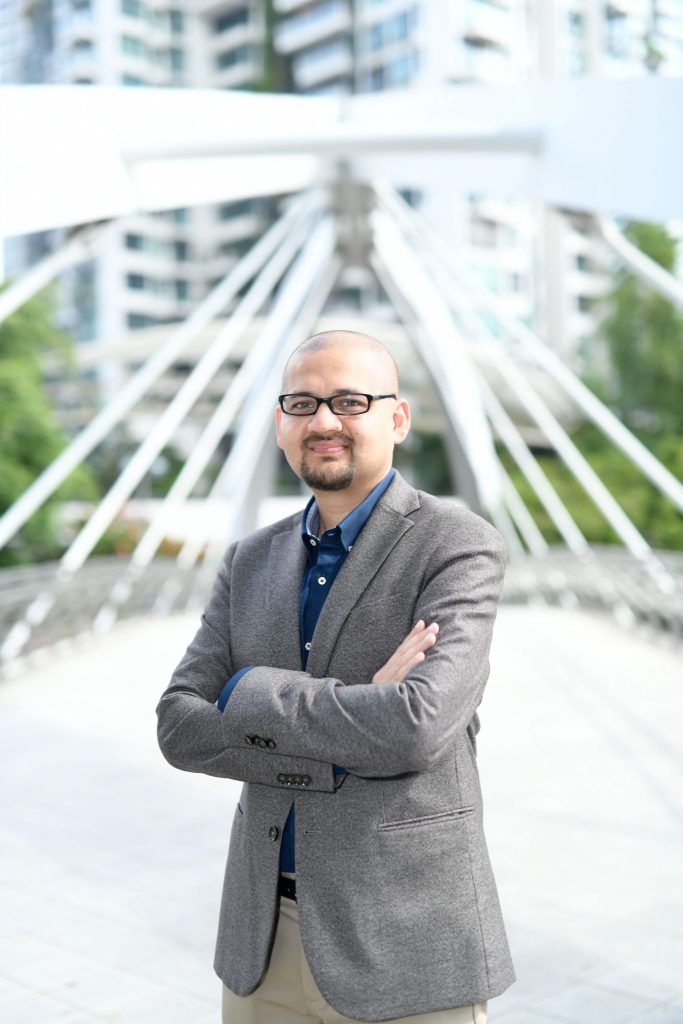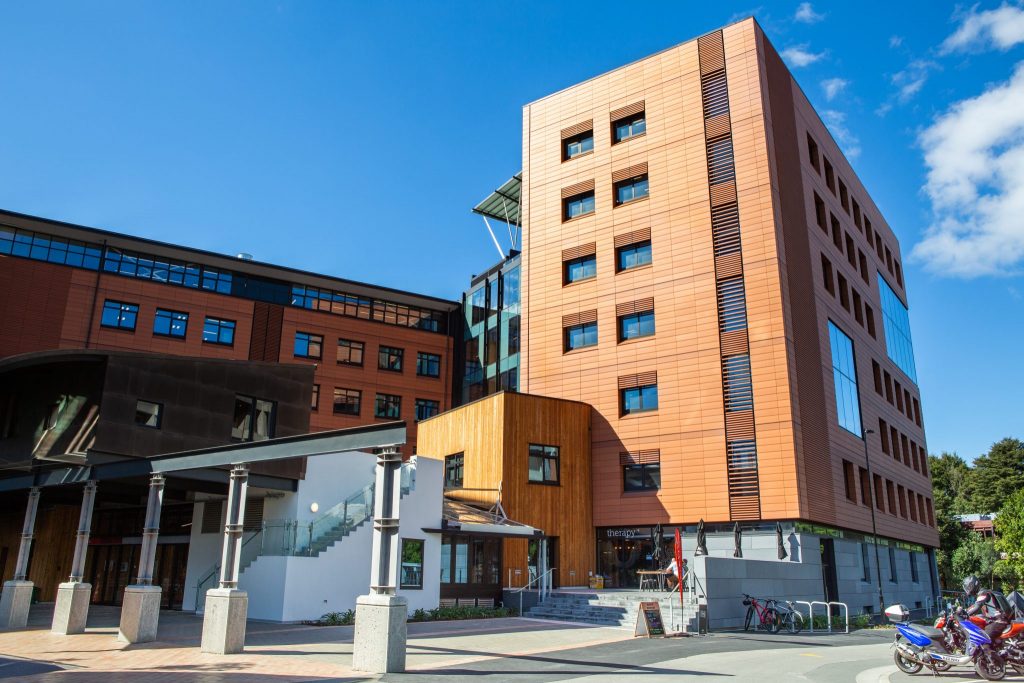From immersive experiences in Māori business culture to plans for performance metrics to ensure community impact, hopes are high for the revamped MBA at the University of Canterbury (UC) Business School in Christchurch, New Zealand – the South Island’s largest city. AMBA & BGA’s Tim Banerjee Dhoul caught up with MBA Director and Associate Professor, Chris Vas, to learn more.
Can you tell us a bit about UC’s current MBA programme?
The UC MBA programme has served the Canterbury, New Zealand and global business communities since 1983. Today, a typical MBA student at UC is 35 years old with more than 10 years of professional experience, studying part time. The cohort is well balanced when it comes to gender diversity, but more can be done to improve the programme’s 15% international footprint.
What are the principal motivations behind the School’s plans to launch a revamped MBA in 2020?
One of the principal motivations was AMBA’s reaccreditation panel visit in 2017. The School also recognised the changing needs of business in the region, particularly in relation to the impact of ‘digital’ on organisations and leadership practices over the next decade; the need to drive intrapreneurship and entrepreneurship; connectivity across geographies and, most importantly, instilling a sense of purpose and impact – beyond economic drivers – in organisations, and in those who lead them.
Which single feature of the revamped MBA are you most excited about?

To be honest, the radical changes that we are putting in place across the programme are exciting as a whole. The MBA will be delivered in the same way that a story unfolds: as a narrative and an experience. The programme will commence with a focus on purpose and impact, while honing in on attributes that support innovative thinking. A focus on agile and innovative leadership, meanwhile, will be woven across the entire programme so that leadership is not just a course or subject delivered at a single point in time.
Having said that, let me give you a glimpse into one aspect of what we’re all excited about. At the start of the programme, MBA participants will be immersed in experiences with New Zealand’s indigenous people – the Māori community – where the importance of ‘place-based knowledge’ intertwined with Māori business culture will be experienced. As the wider University of Canterbury strategy outlines, this experience is important for our students to ensure they ‘are aware of their own identity and its influence in engaging with any other person or community’.
Its incorporation is one way in which our MBA participants in New Zealand can learn to value difference by recognising place-based knowledge. In today’s world, in which we see the rise of protectionist attitudes to trade, migration and citizenship, it is vital that we place importance on issues of identity, especially as these can help bind communities together.
Beyond this initial immersion, the programme will incorporate learning experiences in Māori economies, to understand the aspirations of Māori communities better and emphasise the Māori proverb that people are the most important thing in the world (‘he tāngata, he tāngata, he tāngata’). Such focus also ties into the programme’s commitment to the United Nation’s Sustainable Development Goal (SDG) 11 around the building of sustainable communities and cities.
This commitment is backed up by a new course on ‘societies in smart cities’, which will analyse how organisations strategise and connect their purpose to deliver impact in societies through the lens of smart cities.
MBA participants will be assessed in these courses through their responses to real-life challenges or mini purpose-driven projects that are tied to organisations. In this instance, we are looking to integrate with Christchurch City’s agenda and Ngāi Tahu, a principal iwi [the largest social unit in Māori society which can be translated as ‘nation’] of New Zealand’s southern region, to reimagine growth through sustainable and smart-city initiatives that will create a positive impact on the local community.
Can the new programme help its students pursue purpose-driven and impactful careers?

As a central engine of research, development and innovation in Christchurch, we believe it is imperative to sync with the city’s growth plans and drive a consistent effort in that direction. Consequently, we see the importance of driving entrepreneurial activities in the areas of food, health, tech services and transport. Social entrepreneurship is equally important, and the programme will support MBA participants who are looking to tackle issues of mental health, waste management, education and beyond.
In consultation with the city and members of our advisory board, we will look to set up performance metrics for the MBA programme to ensure our participation as a Business School is active and has an impact. So, hypothetically speaking, during the next three to five years, I would like to see 25% of our MBA cohort start new, scalable ventures in the US, Europe or Australasia.
To this end, the MBA programme will work in tandem with the university’s Centre for Entrepreneurship (UCE) which offers access
to a network of industry advisors and mentors. Given the dominance of working professionals in our programme already, I would also like to see 30-40% of the cohort drive transformative change within their organisations, especially around digital transformation, business model changes, products or services.
It’s no longer acceptable for us as a faculty and industry practitioner team to simply ‘talk the talk’, so we’re setting ourselves a challenge of enabling purpose and driving meaningful impact. For instance, thanks to one of our student projects, we are now in discussions with a major health service provider to operationalise sustainable work practices in the organisation. We will aim to have many such impact stories in the years to come. It’s an interesting experience in which student activity has catalysed opportunity for faculty.
How will the MBA help students identify solutions to emerging technological issues?
As part of the MBA review and redesign process, we recognised that our MBA was likely to be redundant in about five to seven years.
A key reason for this is the pace of technological developments, the impact it has on organisations in terms of strategy, leadership, customer experiences and the whole gamut.
This being the case, in the revamped MBA programme, we’ve chosen to emphasise aspects around digital transformation, technology preparedness and data-driven strategies. Given their profile (mid- to senior-level managers) our students need to be aware and engaged with technological developments rather than become experts in them. They need adequate levels of preparation and knowledge so that they can ask the right questions, understand the limitations of technology, and at the same time be proficient enough to lead teams to deliver on outcomes.
Consequently, courses will have a focus on emerging technologies, such as the internet of things (IoT), big data, AI and blockchain. A deep dive will be in the area of data analytics, working on livebprojects under the guidance of industry experts to demonstrate the value of technology platforms, such as Python and Tableau, in data analysis, visualisation and optimisation – all of which should inform organisational strategy.
How has the programme’s development sought to incorporate employer demands as well as those of students?
As part of the MBA review process, our current students identified issues that were of high importance to their organisation and in which they sought further development. The top three were: innovation (to create new products and services); sustainability (incorporating social and environmental aspects); 3) digital transformation of business models, people and processes.

An added element of need that found its way into responses was the challenge of tackling international markets. Similar issues emerged in my conversations with employers and organisations, though they also voiced the need for further preparation in methodologies such as agile, technological proficiency in addition to development in harnessing an innovative mindset, communication, presentation skills and the ability to problem solve in teams.
The revamped MBA programme will aim to incorporate these aspects in its courses but will also provide several ‘wrap-around services’ outside the programme; for example, workshops on interpersonal skills and media training that help develop well-rounded MBA graduates.
Students will also have the opportunity to be coached formally by industry experts to tackle developmental challenges. Finally, the programme has introduced a ‘creative challenge’ course in which students will focus on themselves as the creative project, pushing their limits (and where failure is an option).
What does your ideal MBA candidate look like, and what makes a cohort ‘right’ for UC’s MBA programme?
One of the key programme changes will be the blended nature of delivery, wherein there will be an almost equal split of real-time online interaction and in-person intensive block weekends. This will enable participation from across Australasia. With the industry links we activate and the end outcomes we are looking to deliver in three to five years, UC’s ideal MBA candidate will embrace risk, enjoy a challenge, and be keen on making a difference as well as willing to lead and drive change.
Our ideal cohort will be gender balanced, diverse – with at least 30% representation from both the international and Māori communities – highly experienced, and representing a cross-section of sectors.
In your opinion, what will be the biggest challenge facing tomorrow’s leaders and what will be the most important skills and attributes required of them?
Relevance. The pace of technological development means that innovation will continue to thrive, creating new products, services and firms, and forcing organisations to prove their ongoing relevance.
This will be the real challenge for leaders over the next decade. Not only will the challenge be for leadership relevance in the context of managing and motivating teams while ensuring a sense of followership in people management, but it will also be for leaders to ensure relevance of their organisations. Uber, Airbnb, Facebook, Tesla and Apple’s iPad are all about 10-15 years old. The next 10-15 years will bring about new innovations. So, for today’s organisations and leadership to remain relevant, maintaining customer experience, organisational purpose, community engagement and societal impact becomes key.
What do you feel is the main challenge facing Business Schools in New Zealand and the surrounding region?
Agility. There’s much captured in this one word. Let me elaborate on two aspects. In many parts of Asia Pacific, there is a lack of trust between Business Schools and industry, or universities and industry in general.
This distrust has resulted in reduced collaboration due to the divergent goals of Business Schools and those of industry, to the extent that we see increasing competition with consultants who have ventured into the areas of research and training.
The second aspect is around the agility of a Business School to alter course and rethink its business model. Most institutions continue to focus on models that delivered success in the past, but these are unlikely to be fit for the future, given technological advancements in the areas of, for example, new forms of AI-driven and customised online learning. Very soon, if not already, the opportunities in this arena could all be up for grabs.
Chris Vas is Associate Professor and MBA Director at the University of Canterbury’s (UC) College of Business and Law, which houses UC Business School. He holds a PhD in public policy from the Australian National University.




























